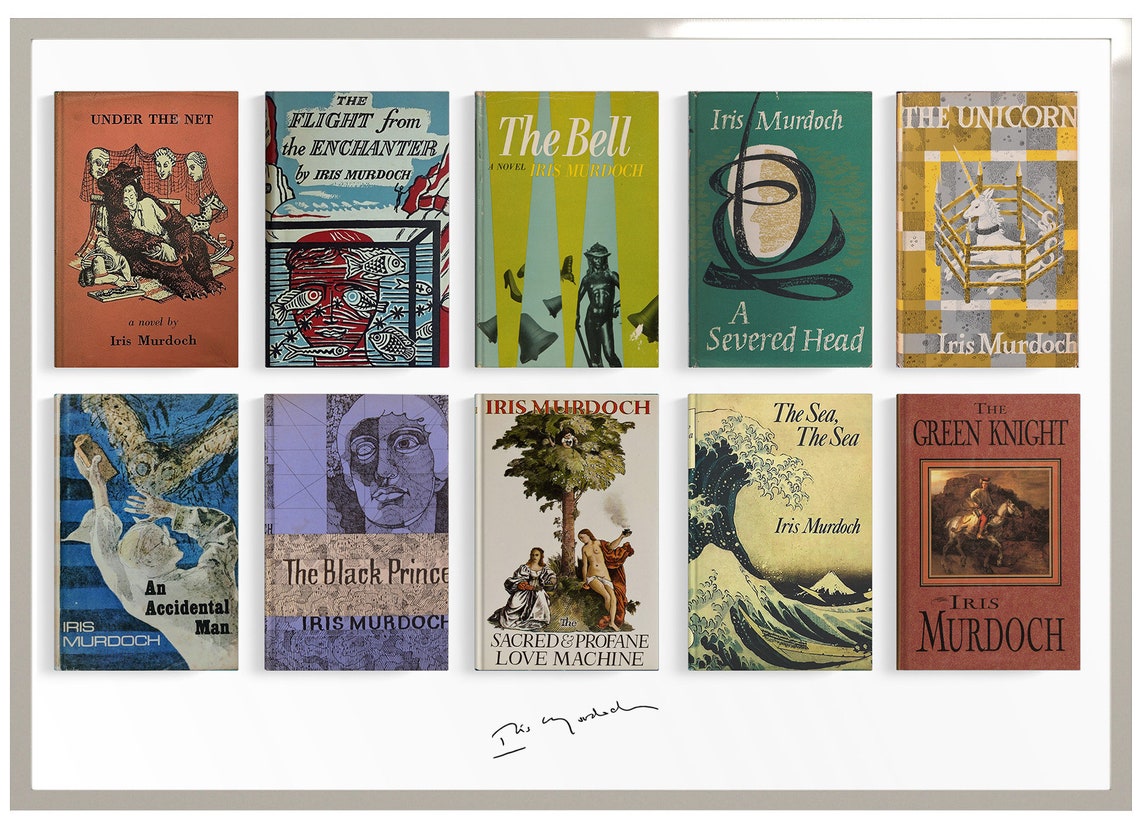
/https://www.thespec.com/content/dam/thespec/entertainment/2011/09/29/mystery-solved-murdoch-series-set-to-end/63a29b544a7a94f6fef256e6c364_Gallery.jpeg)

Nevertheless Wittgenstein’s influence remained clear in all her novels she repeatedly demonstrated that life could only be shown, and not explained. Interestingly, Under the Net was published just a year later in 1954, and later in her own life Iris Murdoch too, professed to be embarrassed by her novel, saying that the writing was immature and juvenile. However, Wittgenstein later referred to this work as meaningless nonsense, and in 1953 he totally rejected the concepts which he had originally published in “Tractatus”. They conform to our “Net”, and are not the world itself, which may slip away, Under the Net. The novel can be seen as a process of revelation to Jake, that our subjective descriptions are apparent, and unreliable. We may have a unified form to describe the universe, but the selection of the form leads to a built-in inaccuracy. This mesh may be fine or coarse, or its holes may be of different shapes, but it will always be regular, and represent an imperfect truth. “To the different networks correspond different systems of describing the world, this form is arbitrary.” The squares of the net determine how things are seen, which is different from that of a net with a triangular, or hexagonal weave: Newtonian mechanics, Wittgenstein said, captures the world through the equivalent of a net, or many nets. Its effect is to blur the image, and make the truth less than perfect. He stated that any attempt to talk about, explain, or write a truth is similar to placing a net over the truth. Although people might conceive of them, such truths are diminished by the limitations of language.

Wittgenstein believed that the deepest truths can never be fully verbalised. Our first clue to its depth is the title, Under the Net, which is a metaphor used by the Austrian philosopher Ludwig Wittgenstein, in his famous work, “Tractatus”, of 1921. Some critics now view it as her best work, and an excellent introduction to the philosophy of Existentialism. However, appearances can be deceptive, and a closer look reveals that this novel is far more than that. Certainly it can be read that way, as a humorous tale about a Bohemian young Irish man in London, Jake Donoghue, who occasionally earns a crust by translating trashy French novels, but by and large has avoided getting a job, and as the blurb says “sponges off his friends”. Yet Under the Net is sometimes dismissed as a light comic piece, in comparison with her later, lengthier novels. As well as books on moral philosophy she wrote twenty-six critically acclaimed novels, one of which won the prestigious Booker prize. Under the Net, from 1954, was the first published novel by Iris Murdoch, the distinguished academic, and professor of moral philosophy at Oxford University.


 0 kommentar(er)
0 kommentar(er)
